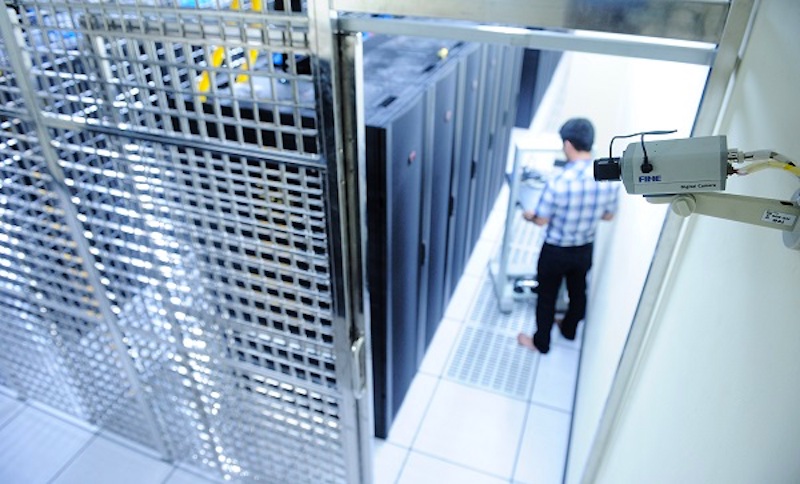Vietnam catches investors’ eye in data center property
Covid-19 is seen as a catalyst to drive the demand for expanding digital infrastructure.
Vietnam, the Southeast Asian emerging market, is coming into view as a high potential market with the increasing demand for data center investments, according to JLL, a commercial real estate services firm in Vietnam.
| Viettel IDC cloud system is located at Hoa Lac High-tech Industrial Park. Photo: Viettel IDC |
Demand for data centers
When the Covid-19 pandemic broke out in early 2020, the nationwide lockdown, along with social distancing regulations and work-from-home regimes altered people’s daily activities, both physical and digital.
JLL has recently received many requests to rent land or lease buildings for the construction and development of Tier 3 or Tier 4 data centers in Vietnam.
Most of the requests came from investors in the Americas, India, and Japan in technology and telecommunications, whose total area needed for these data centers would amount to 10,000 - 30,000 square meters.
Investors are increasingly turning to alternatives in the hunt for asset diversification and enhanced risk-adjusted returns. And one sector that is high on the portfolio is data centers, according to the latest report conducted by JLL.
Livestreaming, watching movies online or meetings over the Internet are consuming more data than ever. Meanwhile, many businesses in the fields of finance, healthcare, retail, and consulting are also switching to digital models, using cloud computing solutions. “This has boosted the demand for data centers,” Trang Bui, Head of Markets at JLL Vietnam said.
The market for hosting, storage, and cloud computing services is expected to be worth US$163 billion in the Asia Pacific in 2021, an almost 30% increase over 2017, according to the Germany-based market and consumer data firm Statista.
Pros and cons
According to JLL, Vietnamese telecom companies including FPT Telecom, CMC Telecom, Viettel, Vietnam Posts, and Telecommunications Group, operate a number of data centers with the standard Tier 3.
The local open-source community has also seen fast growth along with its global counterparts such as Hitachi Information Systems, Hewlett Packard Enterprise, IBM Vietnam Company Ltd., Microsoft Vietnam, and Amazon Web Services Vietnam.
As data centers are the core business of the Japan-based HIS, the company considers Vietnam as a base to expand the data center business into the Southeast Asia region. “HIS plans to keep a close eye on the situation as it expands its operations,” the company noted.
| CMC Telecom's data center. Photo: CMC Telecom |
JLL reported that revenue generated by data centers is growing at 15.7% year-over-year.
A recent report conducted by ResearchAndMarkets.com showed the Vietnamese data center market is projected to grow at a compound annual gross rate (CAGR) of 14.64% in the 2019-25 period to reach more than US$1.6 billion by 2025.
Many property investors are running the asset diversification race, and the data center is an attractive investment opportunity that shouldn’t be missed in today's Zettabyte era, Trang said.
“The attraction for investors is long-term rental contracts, and rental demand is also less affected by the traditional real estate cycle, helping investors enjoy more stable and longer-term benefits,” she added. “Returns from offering data centers for sales tend to be higher than from traditional real estate sectors.”
However, this segment still faces many challenges, including the cost of the construction. The cost of building a data center is much higher than that of a traditional warehouse or office building, according to Viettel, the Vietnamese military-run group. “The facilities are vulnerable to cyber attacks, system failures, and power outages - a common issue in emerging markets,” the group noted.
Xuan Pham, Head of Marketing at JLL Vietnam told The Hanoi Times that investors in data center property need to understand the market fundamentals, financial capacity, and local regulations in which they operate as each locality has its own regulation.
“The power for data centers is required to be continuously supplied without any interruption as they use a huge amount of power, then the power needed to cool the devices,” Xuan said.


.jpg)








